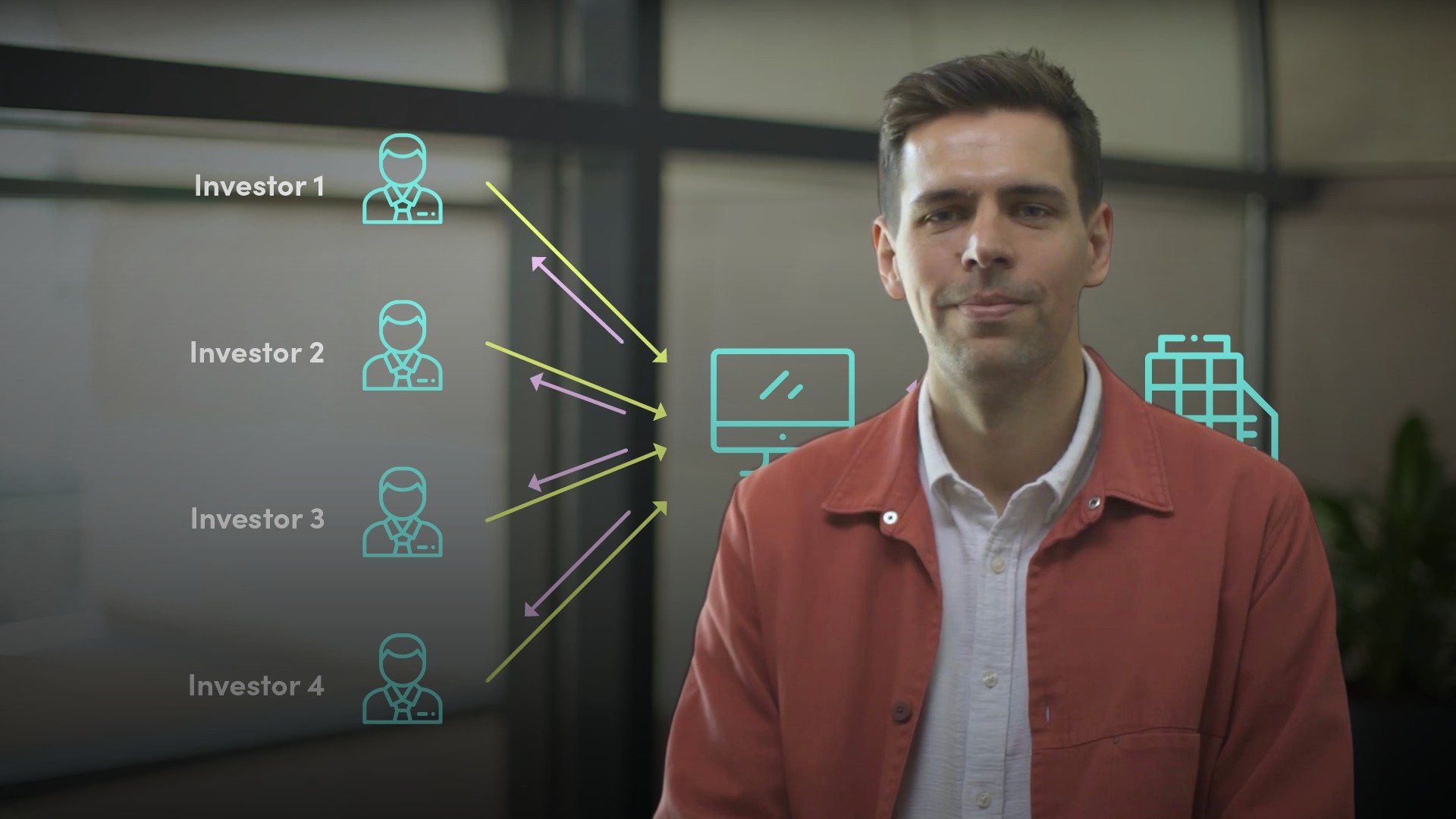
Introduction to Alternative Finance for SMEs

Jonny Hawkins
Financial technology & SMEs financing
For many years the choice of lenders was limited to the large banks. Although, in the last decade, there has been a growth of alternatives finance options for SMEs. Jonny explains short-term business loans, P2P, business cash advances and invoice financing as alternative finance options, and covers the benefits and players of each.
For many years the choice of lenders was limited to the large banks. Although, in the last decade, there has been a growth of alternatives finance options for SMEs. Jonny explains short-term business loans, P2P, business cash advances and invoice financing as alternative finance options, and covers the benefits and players of each.
Subscribe to watch
Access this and all of the content on our platform by signing up for a 7-day free trial.

Introduction to Alternative Finance for SMEs
10 mins 17 secs
Many alternatives to traditional bank loans exist in today’s world of modern finance. Different companies might employ a variety of options in order to satisfy their financing needs. Each comes with unique characteristics and often has pros and cons for different breadths of businesses.
Key learning objectives:
Understand the alternatives to traditional financing
Define short-term business loans, P2P, business cash advances and invoice financing
Subscribe to watch
Access this and all of the content on our platform by signing up for a 7-day free trial.
What are Short-Term Business Loans?
Short-term business loans are installment loans, typically repaid in under 12 months with repayments being made weekly or monthly. Companies receive fast turnaround for their loans from 100% digital financiers to cover short-term expenditure. APRs are usually high given the shorter period that the loan is compounded over, but the companies taking these will ensure that the return they make on the project they invest in makes this cost worthwhile.
Short term finance benefits time-poor companies who don’t mind paying a premium for fast, convenient capital, usually to cover a short-term cash flow crisis. The whole process is conveniently managed online.
Businesses who have steady, predictable sales would prefer fixed payment amounts and schedules to repay their loans. If they are unable to get a bank loan because of their risk profile, then they may consider this option. Equally, businesses often need access to cash more quickly than is possible from their banks.
What is P2P?
Peer to peer lending offers established businesses a way to get finance from a group of investors. This type of finance is usually secured via an online platform where businesses apply for funds for a specified purpose and are matched to suitable investors. Businesses will pay investors interest on the funds borrowed. Investors are usually thought of as being individuals trying to beat the returns they can achieve by leaving their cash in the bank, but now are more typically institutional investors who use the platform to access an asset class they otherwise couldn’t. P2P platforms started with lower risk businesses, but have expanded in higher risk businesses that can come with higher returns.
The turnaround of funding is pretty quick with some platforms able to fulfil the funding request from businesses within 48 hours. Peer to peer consumer lending is mutually beneficial - lenders achieve higher interest rates than if they had gone through a bank, and borrowers achieve a lower interest rate, per their advertising at least. Both sides of the transaction have extracted value by effectively disintermediating the bank.
Established businesses that have been trading for at least two years, usually SMEs. The platforms also typically have wide bands of suitable credit risk, for example from A+ to E, giving a wider range of businesses the possibility of accessing funds.
What are Business Cash Advances?
Business or Merchant Cash Advances are based on annual revenue and follow a “pay as you earn” model. Businesses repay such advances as a fixed percentage of future takings through their credit or debit card terminal. This form of financing is a solution for companies which are having difficulty securing traditional loans or which need funding for a special project. It is also particularly suitable for businesses with seasonal, or variable, sales from month to month.
Business Cash Advances don’t have a fixed term, repayments are collected from card sales as they occur until the advance is repaid. This means that if a business’s sales decline, then the pain is shared by their funder. The reverse is true - if sales increase, the funder gets repaid quicker. Via this solution, SMEs can share some of the risk of future sales patterns with their funder.
Business Cash Advances are suitable for small-to-medium sized businesses with over 6 months of card sales history and who need capital to grow their business or purchase new equipment. This makes the product quite sector specific, favouring businesses making a lot of small sales to consumers such as restaurants or convenience stores.
What is Invoice Financing?
Invoice financing allows businesses to sell outstanding invoices to investors. The use of online platforms allows this to be done in real-time. Businesses apply to become a seller and select the invoices that they wish to raise finance against. There are two types of invoice financing – factoring and discounting.
With invoice factoring, the invoice financer will collect the money owed to the business by its debtor. They’ll buy the debt from the business for a percentage of its value and will then pay the balance upon the debtor settling their bill.
With invoice discounting, the invoice financer lends the business itself money against any unpaid invoices. The business owner will remain responsible for collecting their own debts and when its debtors pay what they owe, the business will then pay the invoice financier along with a fee for using this service.
Smaller businesses might benefit from the shifting of responsibility for collecting debts to a third party. Alternatively, other businesses might like the cash injection whilst still being able to maintain contact with debtors as they collect outstanding payments owed from them. Alternative Invoice trading platforms also allow businesses to factor/discount single invoices, or as and when they need to, as opposed to traditional invoice finance providers such as banks or Bibby, who usually want a longer term commitment for all invoices to be traded via them.
Given the finance is secured against invoices, the businesses this is suitable for are those that issue invoices to customers for their revenues. They will need to be maintaining accurate and timely accounting information to be able to factor or discount their invoices. It is particularly useful for smaller businesses supplying larger companies who might only pay on 60 or 90 cycles, leaving smaller businesses with cash flow issues.
Subscribe to watch
Access this and all of the content on our platform by signing up for a 7-day free trial.

Jonny Hawkins
There are no available videos from "Jonny Hawkins"






















